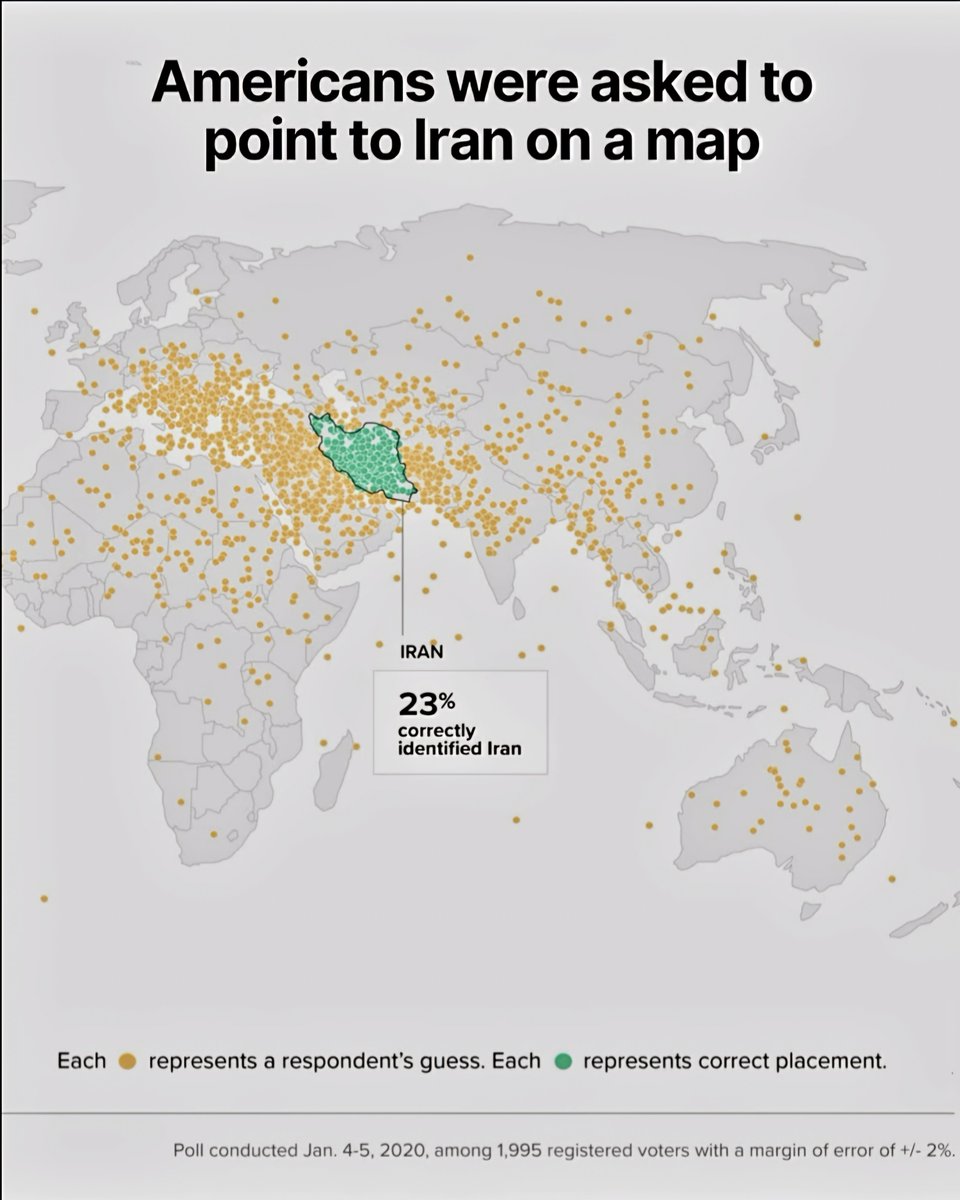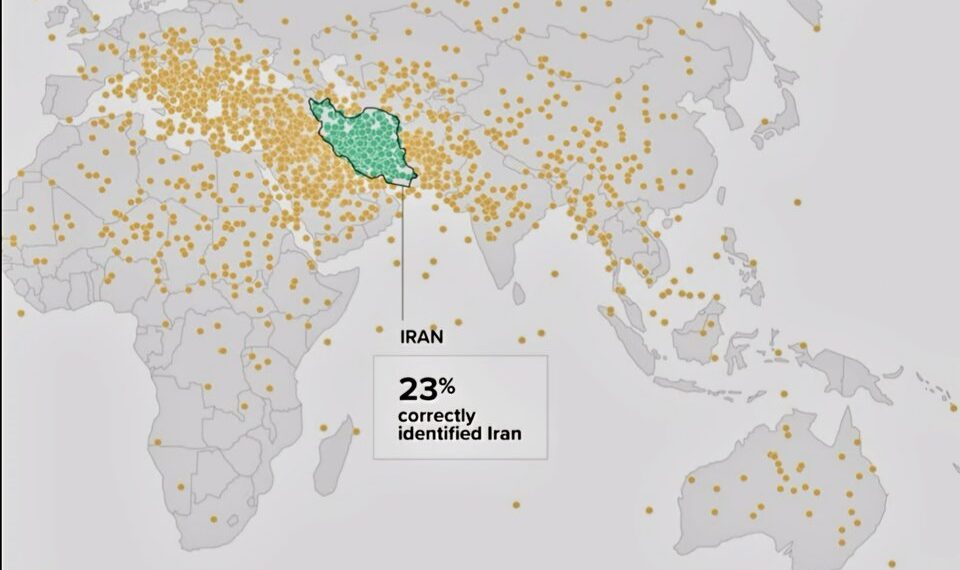Select Language:
Surprising Geographic Ignorance: A Glimpse into American Awareness of Iran
A recent poll conducted by Morning Consult in collaboration with Politico has uncovered a startling revelation about American voters’ awareness of international geography, particularly concerning Iran.
Low Awareness Among American Voters
The poll revealed that a mere 23% of registered American voters could accurately locate Iran on a blank world map. When provided with a zoomed-in view of the Middle East, only a slight increase was noted, with just 28% able to pinpoint the country.

Context of the Poll
Conducted in early 2020, the poll coincided with heightened tensions following the U.S. drone strike that took the life of Iranian General Qasem Soleimani. This significant event had pushed Iran into the national spotlight, prompting debates around U.S. foreign policy.
Disconnect Between Opinion and Understanding
Despite the lack of geographic knowledge, many Americans held strong views regarding the U.S. stance toward Iran. This points to a noticeable disconnect wherein citizens express firm opinions without a foundational understanding of the nations involved.
Demographic Influences on Geographic Knowledge
The poll results also indicated that certain demographic factors played a role in answering accuracy. Men, wealthier individuals, and those with higher educational attainment exhibited better knowledge regarding Iran’s location. In contrast, variables such as age and political affiliation seemed to have minimal impact on the results.
A Broader Issue of Geographic Literacy
This is not an isolated occurrence. Other studies have shown similar trends, with numerous Americans struggling to identify key countries involved in global affairs, including North Korea, Ukraine, and Afghanistan. This lack of geographic awareness raises concerns about the quality of public discourse on international issues.
Importance of Geographic Literacy
Ultimately, the findings of this poll highlight a critical need for improved geographic literacy in a world where global events have significant political, economic, and humanitarian implications. Knowing the location of a country is a fundamental step toward grasping its culture, context, and the stakes surrounding foreign policy decisions.
Conclusion
This survey serves as a wake-up call about the importance of fostering a more informed electorate. Understanding international geography isn’t just an academic exercise—it’s essential for meaningful engagement in discussions that shape our world.






